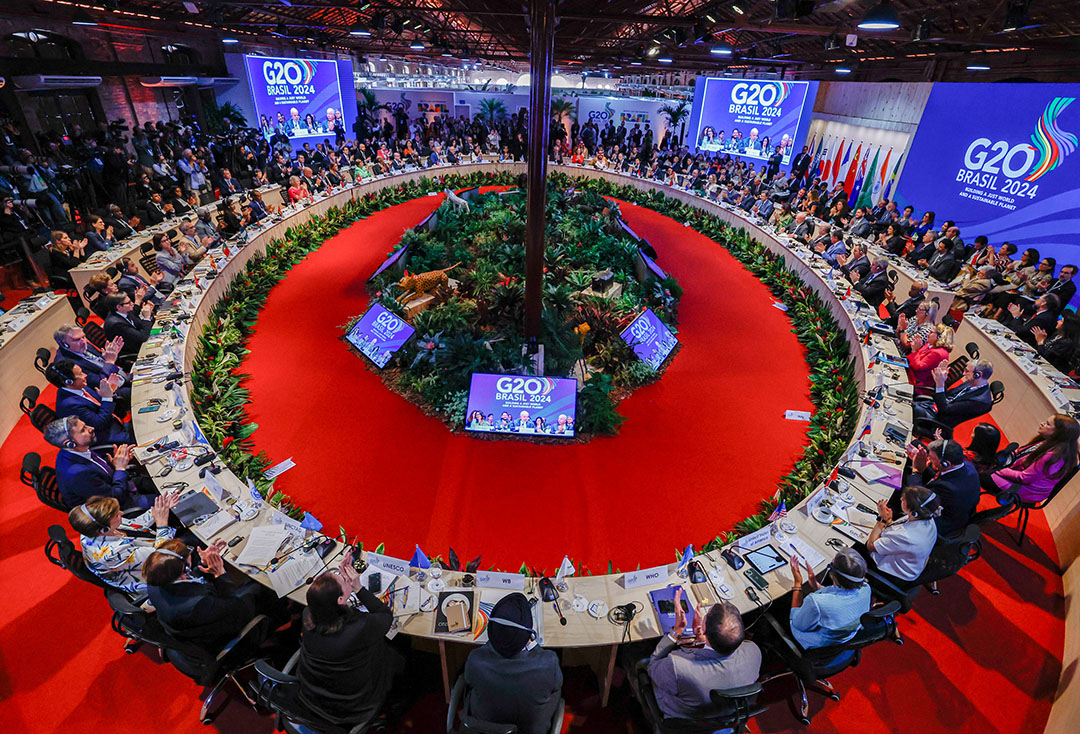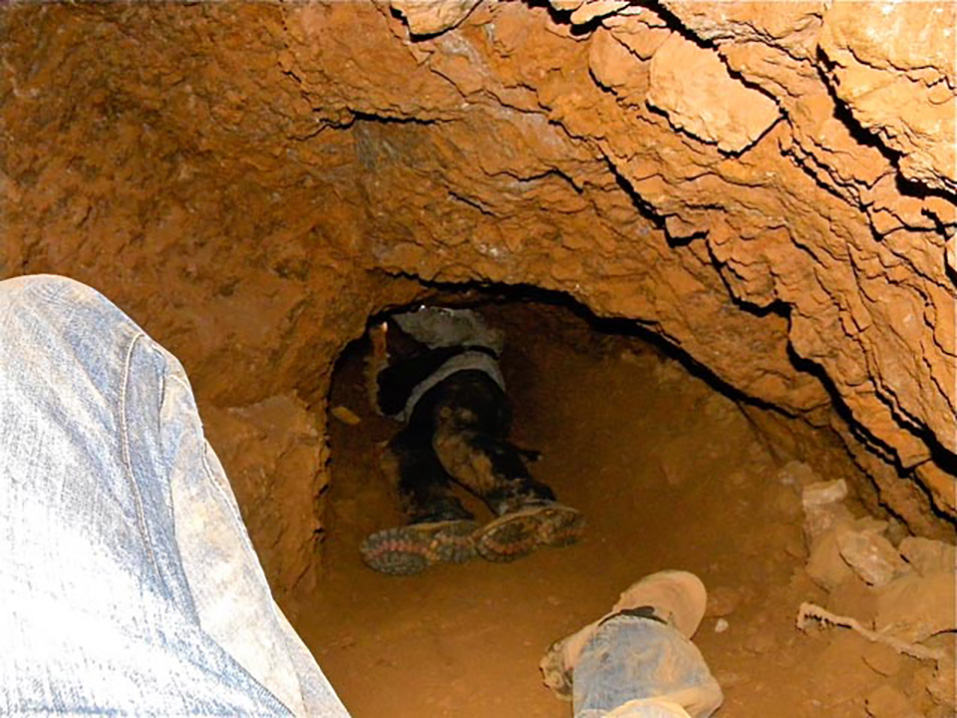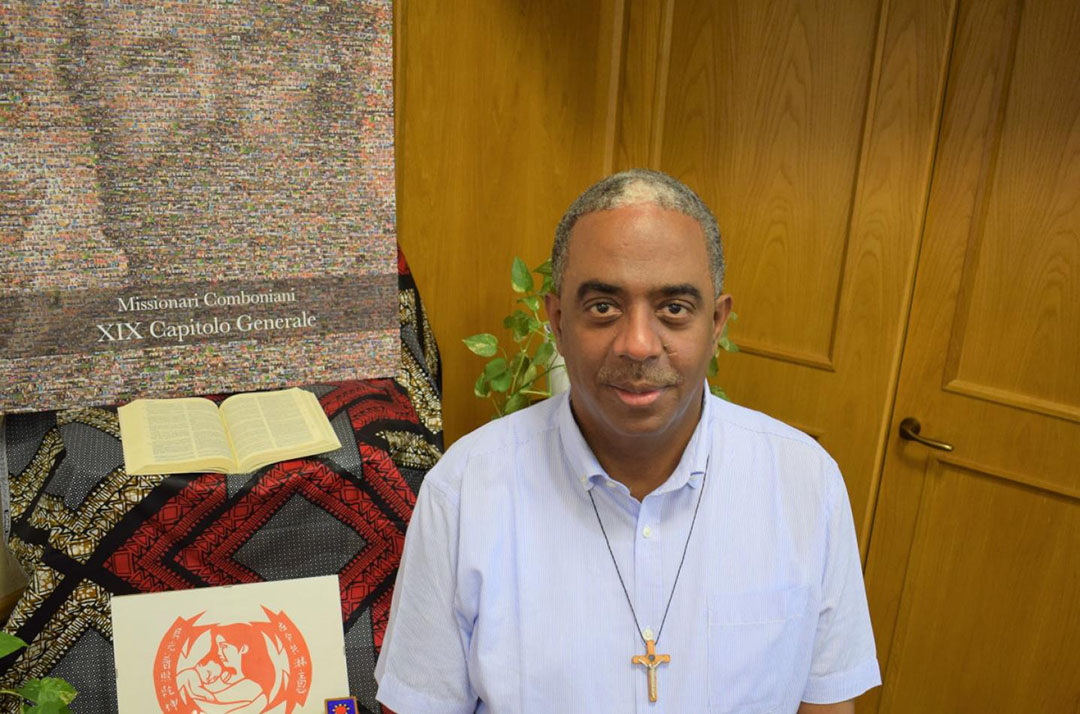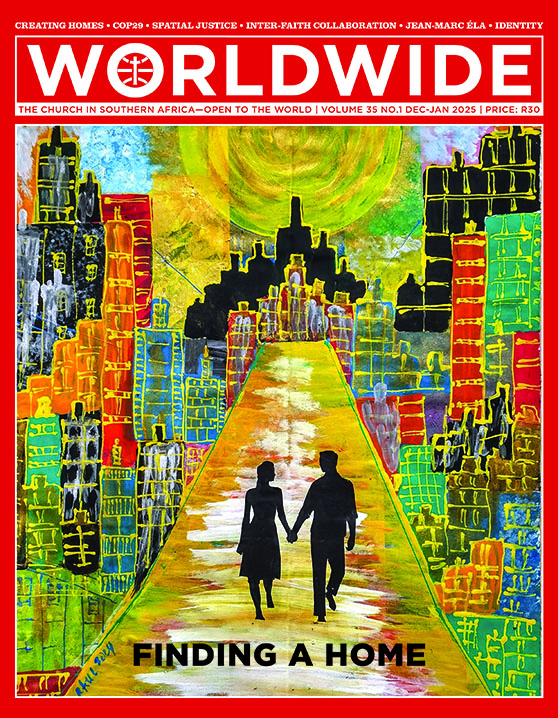
FINDING A HOME
This painting represents the reality of so many people in the world looking for a place to stay, especially as they flock into crowded modern cities, searching for jobs or fleeing from various situations of conflict. The need to create living spaces for them is acute. Like Joseph and Mary, who found no place at the inn, millions of people risk ending up unsheltered in the streets and deprived of a dignified dwelling which they can call home.
Painting by Fr Raul Tabaranza MCCJ
RADAR
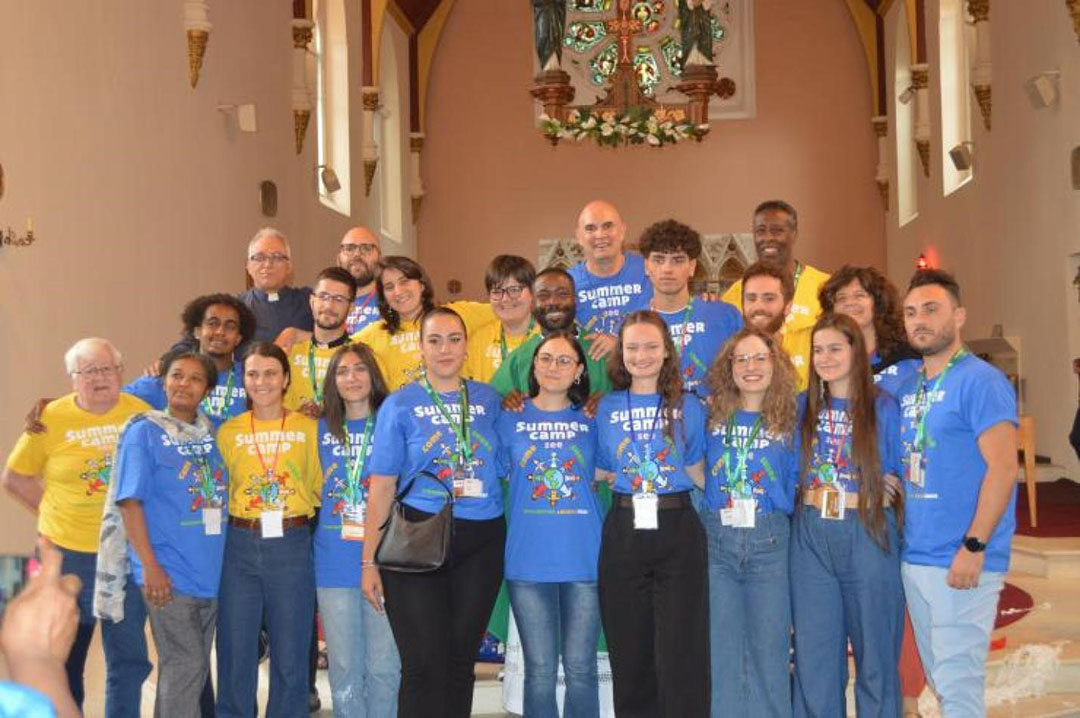
“PASSION FOR CHRIST – PASSION FOR HIS PEOPLE”
BY FR. GORDON REES | PARISH OF ST JOSEPH, ROEHAMPTON, LONDON
I AM the fourth child of seven (four brothers and two sisters). All my schooling and tertiary studies were completed in Pretoria. I worked for two different companies for a total of 15 years as a computer programmer, systems analyst and project manager. I enjoy nature, gardening, music, cooking and watching international rugby, football, athletics and cricket.
After a year of discernment and a guided retreat, I responded to the Lord’s call to the priestly missionary life and entered the Comboni postulancy. After completing my studies in philosophy, I was admitted to the novitiate of Namugongo, Uganda.
During this time, I also did pastoral work in a reformatory and with street children in Kampala, and taught English in a school in Kasala for three months. Twelve of us took the first vows in May 1998. I was sent to Rome for my theological studies at the Gregorian University, and later studied pastoral theology at the Angelicum.
In January 2002 I took my perpetual vows and in March I was ordained a deacon with five other confreres. I was ordained a priest on 17 August 2002 by Archbishop George Daniel in the Cathedral of the Sacred Heart in Pretoria.
My first missionary assignment was to Colombia, where I arrived in November 2002. I worked in Aguachica, Cesar, and at the end of 2003 I was sent to open a new mission among the Afro-Colombians in Tumaco, Nariño, founded in 1570, and famous for a Eucharistic miracle which took place on 31 January 1906. At first, we lived with the Carmelite Fathers. Then we rented a small house near the new Parish of the Resurrection.
We lived among the people, sharing their daily reality of lack of basic services, violence, killings, gangs and drug trafficking. We had no personal transport and did all our own housework. We gave priority to spiritual and human formation and set up an after-school study centre where the children could do research for their homework and assignments on the computers, or access the many books in the library.
We organised a large Campaign for Life (and Peace) in the diocese and especially in all the barrios (sectors) of the parish. We trained “Missionaries for Life”, who visited each house in the parish, explaining the campaign and inviting locals to make a commitment for life and peace. Each house was invited to put the stickers and posters publicizing the Campaign on their doors and walls.
We also advertised it on all the local radio stations, calling for peace and respect for human life. We set up an Afro-centre to promote cultural identity, where Afro music, dance, theatre, art, handicrafts, sports, etc. were presented or taught. We gave priority to the training of catechists, youth and the group of missionary children (4 to 14 years).
I returned to South Africa in 2012, first working as the administrator of Worldwide magazine, before being appointed as the national director of Missio for South Africa, Botswana and eSwatini in July 2014. From the outset, I endeavoured to change the common perspective of Missio, from that of just another collection, to that of an instrument of formation, information and promotion of the universal mission of the Church, enabling each Catholic to actively live his or her missionary discipleship.
My visits to various dioceses and meetings were meaningful and I was able to appreciate the hardship and poverty experienced by so many communities. It was truly uplifting to see the relief, hope and transformation that Missio projects had brought to the lives of so many. Our annual face-to-face meeting with Pope Francis was always special. As National Director of Mission, I spent a month with a family of the Phom tribe in the north-east of India.
The remote village of Longleng is beautiful, with seemingly endless hills, gorges and jungles, and thick clouds cover the valley in the morning. Most of the houses are built on the hillside and are made of bamboo and corrugated iron. The majority of the inhabitants are Baptist, with only about 30 Catholic families. I attended the ordination of a young man from the tribe and enjoyed the inculturated liturgy.
It seems that I was the first foreign missionary who had ever come to live with them. It was so enriching for me to live with people who struggle so much and have the bare minimum in life, yet are so joyful and willing to share what little they have, even with strangers.
From July 2019 I was Provincial Treasurer until June 2023. My missionary work has taken me to many other countries (Lesotho, Namibia, Botswana, Mozambique, Tanzania, Kenya, Zimbabwe, Uganda, eSwatini, Zanzibar, Zambia and India) and I have learnt a lot from their different missionary realities.
Last June I was appointed assistant priest in a Comboni Parish, St Joseph in Roehampton, in the Archdiocese of Southwark (South London). Pope Francis rightly says: “The Mission is at once a passion for Christ and a passion for his people”: without passion one cannot truly be a missionary. With this same spirit I look forward to working in the UK, learning from this multicultural society and sharing my mission and faith experience with others.
Source: https://www.comboni.org/

